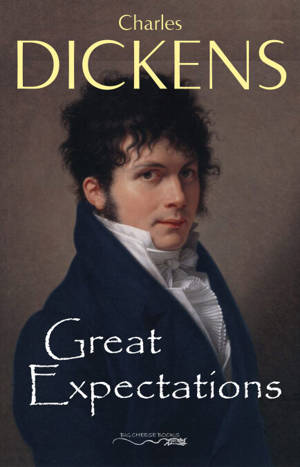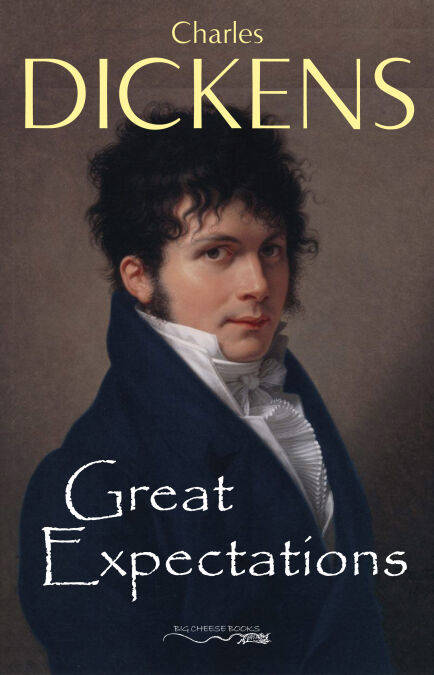
Bedankt voor het vertrouwen het afgelopen jaar! Om jou te bedanken bieden we GRATIS verzending (in België) aan op alles gedurende de hele maand januari.
- Afhalen na 1 uur in een winkel met voorraad
- In januari gratis thuislevering in België
- Ruim aanbod met 7 miljoen producten
Bedankt voor het vertrouwen het afgelopen jaar! Om jou te bedanken bieden we GRATIS verzending (in België) aan op alles gedurende de hele maand januari.
- Afhalen na 1 uur in een winkel met voorraad
- In januari gratis thuislevering in België
- Ruim aanbod met 7 miljoen producten
Zoeken
Omschrijving
GREAT EXPECTATIONS is Charles Dickens' thirteenth novel and his penultimate completed novel; a bildungsroman which depicts the personal growth and personal development of an orphan nicknamed Pip. It is Dickens's second novel, after David Copperfield, to be fully narrated in the first person. The novel was first published as a serial in Dickens's weekly periodical All the Year Round, from 1 December 1860 to August 1861. In October 1861, Chapman and Hall published the novel in three volumes.
It is set among marshes in Kent, and in London, in the early to mid-1800s, and contains some of Dickens' most memorable scenes, including the opening, in a graveyard, where the young Pip is accosted by the escaped convict, Abel Magwitch. GREAT EXPECTATIONS is full of extreme imagery -poverty; prison ships and chains, and fights to the death-and has a colorful cast of characters who have entered popular culture. Dickens's themes include wealth and poverty, love and rejection, and the eventual triumph of good over evil. GREAT EXPECTATIONS is popular both with readers and literary critics, and has been translated into many languages, and adapted numerous times into various media.
Upon its release, the novel received near universal acclaim. Thomas Carlyle spoke disparagingly of "all that Pip's nonsense". Later, George Bernard Shaw praised the novel, as "All of one piece and consistently truthful." During the serial publication, Dickens was pleased with public response to GREAT EXPECTATIONS and its sales; when the plot first formed in his mind, he called it "a very fine, new and grotesque idea."
It is set among marshes in Kent, and in London, in the early to mid-1800s, and contains some of Dickens' most memorable scenes, including the opening, in a graveyard, where the young Pip is accosted by the escaped convict, Abel Magwitch. GREAT EXPECTATIONS is full of extreme imagery -poverty; prison ships and chains, and fights to the death-and has a colorful cast of characters who have entered popular culture. Dickens's themes include wealth and poverty, love and rejection, and the eventual triumph of good over evil. GREAT EXPECTATIONS is popular both with readers and literary critics, and has been translated into many languages, and adapted numerous times into various media.
Upon its release, the novel received near universal acclaim. Thomas Carlyle spoke disparagingly of "all that Pip's nonsense". Later, George Bernard Shaw praised the novel, as "All of one piece and consistently truthful." During the serial publication, Dickens was pleased with public response to GREAT EXPECTATIONS and its sales; when the plot first formed in his mind, he called it "a very fine, new and grotesque idea."
Specificaties
Betrokkenen
- Auteur(s):
- Uitgeverij:
Inhoud
- Taal:
- Engels
Eigenschappen
- Productcode (EAN):
- 9789897780158
- Verschijningsdatum:
- 28/11/2019
- Uitvoering:
- E-book
- Formaat:
- ePub

Alleen bij Standaard Boekhandel
Beoordelingen
We publiceren alleen reviews die voldoen aan de voorwaarden voor reviews. Bekijk onze voorwaarden voor reviews.









